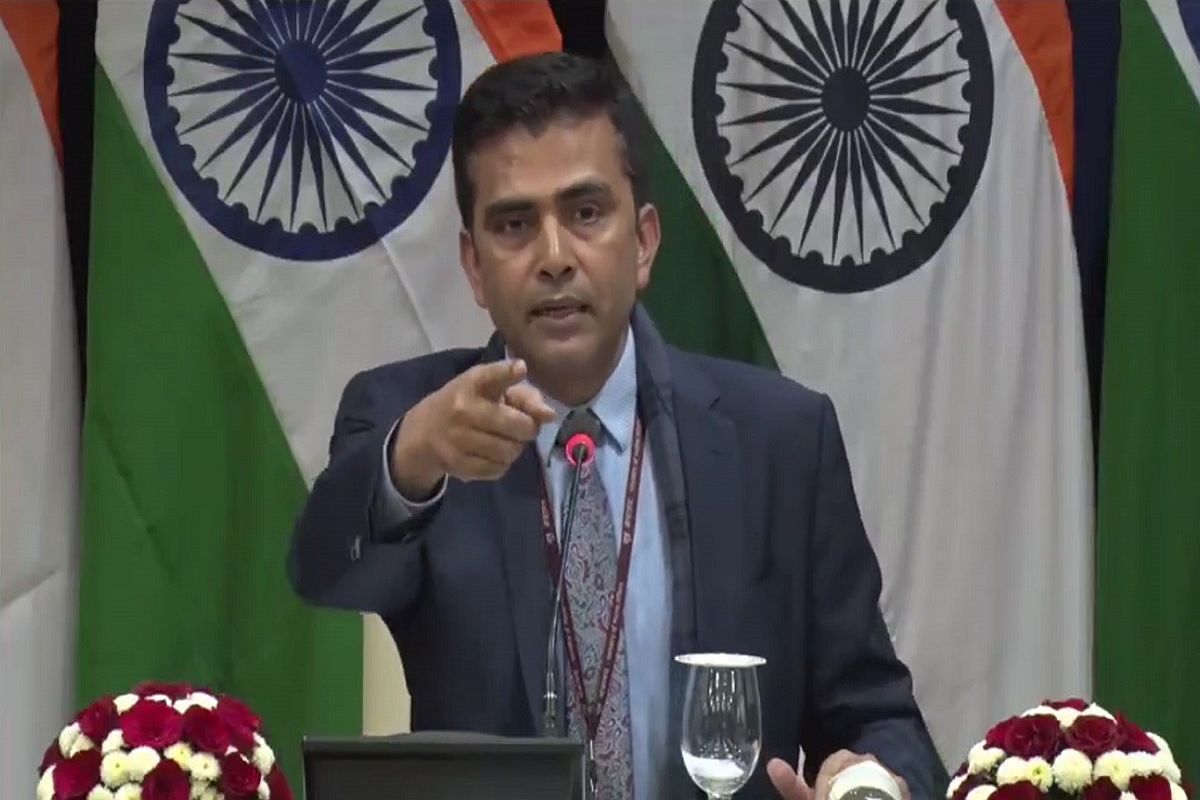Work underway on 13-GW solar power plant in Ladakh: Khattar
Union Minister of Power Manohar Lal Khattar has said that work is underway on a 13-gigawatt solar power plant in the Union Territory of Ladakh.
Objecting to J-K’s bifurcation, China had said India’s decision to ‘include’ some of ‘China’s territory’ into its administrative jurisdiction ‘challenged’ Beijing’s sovereignty.

Ministry of External Affairs official spokesperson Raveesh Kumar. (Photo: Twitter/@MEAIndia)
India on Thursday hit out at China for its remarks on bifurcation of Jammu and Kashmir into two Union Territories, saying it does not expect other countries, including Beijing to comment on its internal matters.
Objecting to J-K’s bifurcation, China had said India’s decision to “include” some of “China’s territory” into its administrative jurisdiction “challenged” Beijing’s sovereignty.
Ministry of External Affairs Spokesperson Raveesh Kumar, while addressing the media, said that China has no right to comment on the matter since it continues to illegally occupy large parts of Jammu and Kashmir and Ladakh.
Advertisement
Kumar said that India does not expect other countries, including Beijing to comment on the matters which are internal to India, just as New Delhi refrains from commenting on the internal issues of other countries.
China is well aware of India’s consistent and clear position on this issue, the government official said, asserting that the Union Territories of Jammu and Kashmir and Ladakh are integral parts of India.
“The matter of reorganization of the erstwhile state of J-K into UTs of Jammu and Kashmir and Ladakh is entirely an internal affair of India,” Kumar said.
China had earlier objected to the Indian government’s August 5 order of the revocation of Article 370 and the formation of Ladakh as Union Territory, saying that some of the area involved Chinese territory.
“The Indian government officially announced the establishment of so-called Jammu and Kashmir and Ladakh Union Territories which included some of China’s territory into its administrative jurisdiction,” China’s Foreign Ministry spokesman Geng Shuang told the media on Thursday.
“China deplores and firmly opposes that. India unilaterally changed its domestic laws and administrative division challenging China’s sovereignty,” he said replying to a question.
“This is unlawful and void and this is not effective in any way and will not change the fact that the area is under Chinese actual control,” he said.
“China urges the Indian side to earnestly respect Chinese territorial sovereignty, abide by our treaties and uphold peace and tranquillity in the border areas and create favourable conditions for proper settlement of boundary question,” he said.
In a historic development, Jammu and Kashmir ceased to exist as a state from Thursday and was officially bifurcated into two Union Territories – Jammu and Kashmir and Ladakh.
The state has been officially divided into the two Union Territories pursuant to the Jammu and Kashmir Reorganisation Bill, 2019, which the government passed in Parliament on August 5.
Earlier in September, India had strongly objected to the reference made by Chinese Foreign Minister Wang to Jammu and Kashmir, and Ladakh in his address at the UN General Assembly.
India said that it expected other countries to respect India’s sovereignty and territorial integrity.
Advertisement